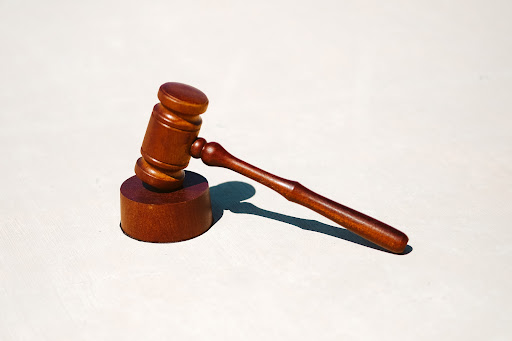Workplace discrimination continues to be a widespread problem in the present day. Numerous employees encounter unjust treatment based on their protected characteristics of employment.
Discrimination affects employees in all sectors and carries significant implications. If you believe you have been subjected to discrimination, a leading Los Angeles discrimination attorney could be your go-to solution.
How Discrimination in the Workplace Occurs
Workplace discrimination encompasses multiple aspects that can significantly impact employees and their professional lives. Here’s how discrimination occurs in workplaces:
Hiring and Recruitment
Discrimination can occur during the hiring process, where employers may unfairly favor or reject candidates based on race, gender, or age. This unjust treatment denies qualified individuals equal employment opportunities.
Unequal Pay and Benefits
Discrimination often manifests as unequal pay and benefits. Employees performing the same job may receive disparate compensation solely due to their gender, race, or other protected characteristics. This undermines fairness and perpetuates wage gaps.
Hostile Work Environment
Discrimination can create a hostile work environment, where individuals endure offensive remarks, jokes, or derogatory actions based on their race, religion, or sexual orientation. Such behavior fosters a toxic atmosphere that hampers productivity and well-being.
Promotion and Advancement
Discrimination can impede career growth and advancement opportunities. Biased decisions based on personal attributes rather than merit and qualifications can create barriers for employees seeking promotions.
Retaliation and Fear
Those who speak out against discrimination may face retaliation, including harassment or even termination. The fear of repercussions can silence victims and perpetuate the cycle of discrimination, making it challenging to address and rectify the issue.
Why is Workplace Discrimination Still Prevalent?
The prevalence of discrimination can be attributed to numerous factors. Here are the common contributors to the persistence of workplace discrimination:
Unconscious Biases
Many individuals hold unconscious biases, which can influence their decisions and actions in the workplace, leading to discriminatory behavior.
Stereotypes and Prejudices
Deep-rooted stereotypes and prejudices about certain groups of people continue to shape discriminatory practices in hiring, promotions, and day-to-day interactions.
Lack of Diversity and Inclusion Initiatives
Companies that do not prioritize diversity and inclusion often perpetuate discriminatory practices, inadvertently creating an environment where discrimination thrives.
Inadequate Policies and Enforcement
Weak or insufficient anti-discrimination policies, along with a lack of proper enforcement mechanisms, allow discriminatory practices to go unchecked.
Fear of Retaliation
Many employees are reluctant to report instances of discrimination due to fear of retaliation, such as negative consequences for their careers or hostile work environments.
Power Imbalance
Discrimination often arises from power imbalances within organizations, where those in positions of authority exploit their authority to discriminate against subordinates.
Lack of Awareness and Training
Insufficient education and training on diversity, inclusion, and unconscious bias leave employees and managers ill-equipped to identify and address discriminatory behaviors.
Limited Accountability
When organizations fail to hold individuals accountable for their discriminatory actions, it sends a message that discrimination is tolerated, perpetuating its prevalence.
Systemic Inequalities
Discrimination is deeply intertwined with systemic inequalities that exist in society, such as unequal access to education, healthcare, and opportunities, creating a cycle that perpetuates discriminatory practices.
Cultural Norms and Stigma
Prevailing cultural norms and societal stigma associated with certain identities contribute to discriminatory practices, making it challenging to eradicate workplace discrimination fully.
Legal Protections Against Workplace Discrimination
Legal protections for discrimination in work environments aim to foster fair and inclusive work environments, ensuring equitable treatment regardless of protected characteristics. While workplace discrimination is still prevalent, it can be effectively countered by the following legal protections:
1. Title VII of the Civil Rights Act of 1964 prohibits discrimination based on race, color, religion, sex, or national origin.
2. The Age Discrimination in Employment Act (ADEA) safeguards employees aged 40 and above from age-based discrimination.
3. The Americans with Disabilities Act (ADA) forbids discrimination against individuals with disabilities and mandates reasonable accommodations by employers.
4. The Pregnancy Discrimination Act (PDA) prohibits discrimination based on pregnancy, childbirth, or related medical conditions.
5. The Equal Pay Act (EPA) ensures equal compensation for equal work performed by both men and women.
6. The Genetic Information Nondiscrimination Act (GINA) bars employers from discriminating based on an individual’s genetic information.
7. The Uniformed Services Employment and Reemployment Rights Act (USERRA) shields military service members from discrimination and secures their reemployment rights.
8. The Rehabilitation Act prohibits discrimination against individuals with disabilities by federal government agencies and contractors.
9. State and local laws often extend additional protections against workplace discrimination, encompassing sexual orientation or gender identity.
10. Employees who report or oppose discrimination are protected from employer retaliation.
Addressing the underlying factors discussed in this article is the first step to combating workplace discrimination effectively. By addressing these issues head-on, organizations can strive towards creating equitable and inclusive work environments where discrimination has no place.

